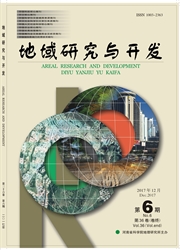

 中文摘要:
中文摘要:
在已有研究的基础上,引入收入差距因素,以1988—2004年为样本期,选取年内建设占用耕地新增数量和基尼系数两个指标,运用Granger因果分析方法,探讨了两者间的因果关系。结果表明:耕地非农化与收入差距之间存在着双向的因果关系:滞后3期的耕地非农化是收入差距扩大的原因;滞后4期的收入差距扩大又导致了耕地非农化的加快。基于此认识,提出了慎重对待耕地非农化过程、合理分配耕地非农化收益、建立健全社会保障体系等建议,为耕地非农化的调控提供参考。
 英文摘要:
英文摘要:
On the base of former studies, this paper tries to take up two indexes of increasing construction land per year and income disparity, and the relationship between conversion of cultivated land and income disparity was studied. The authors think that there exists bidirectional causal relation. Conversion of cultivated land is the causality of income disparity at the third period of delaying, and income disparity is the causality of conversion of cultivated land at the forth period of delaying. Based on this result, the authors give three suggestions such as taking the process of conversion of cultivated land seriously, distributing profits rationally, and building social security system. All of them will provide a helpful reference to public policy on conversion of cultivated land.
 同期刊论文项目
同期刊论文项目
 同项目期刊论文
同项目期刊论文
 期刊信息
期刊信息
